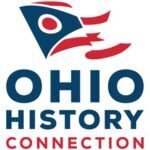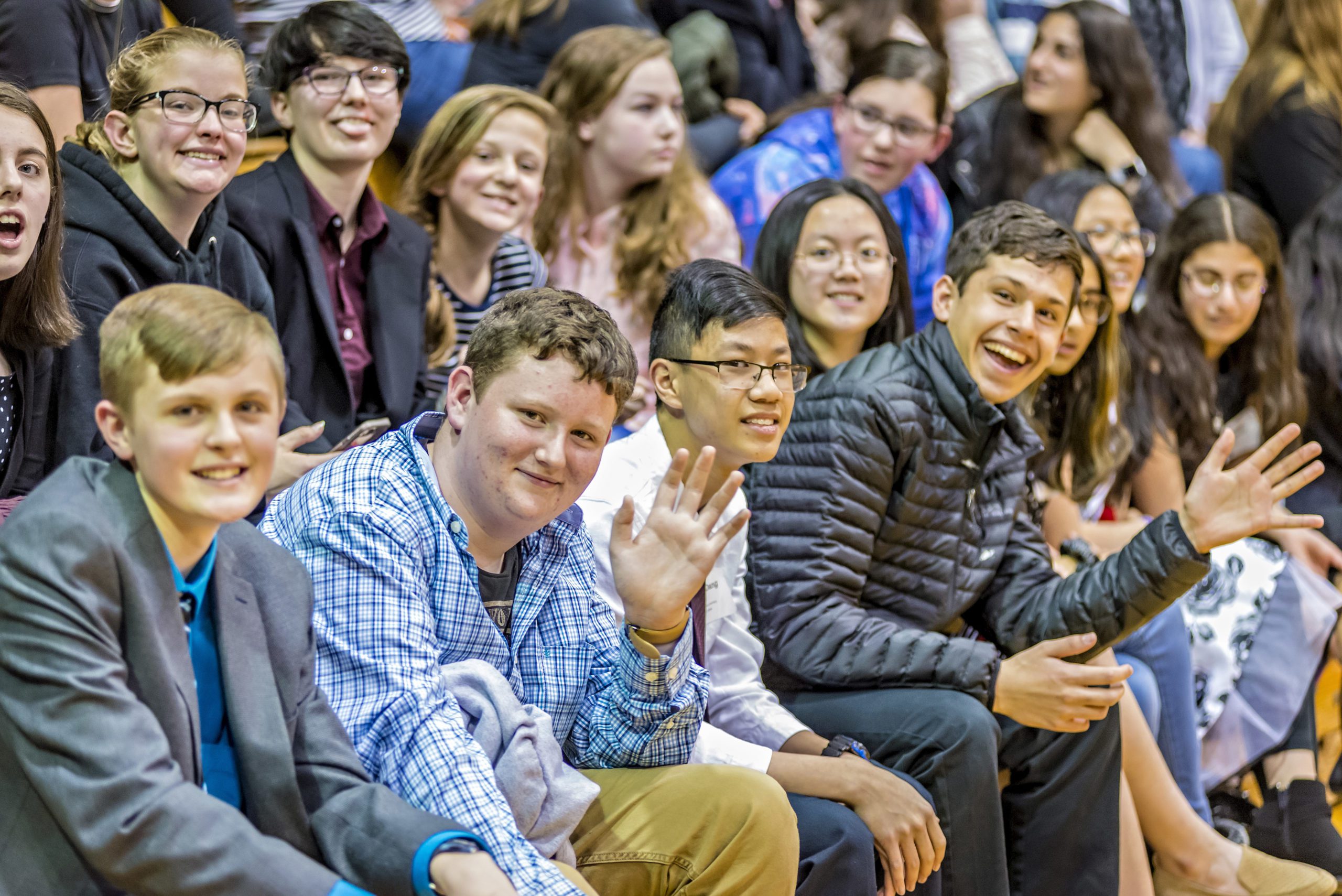
Students
No matter what a student's key interests are, there is a way for them to engage with Ohio History Day!

Check out these resources to help get familiar with the Ohio History Day program and contest.
Use these Project Graphic Organizers to help you decide and create your project!
Get OrganizersExhibits, websites, papers, documentaries and performances! Which one will you create? Consider these questions...
Similar to exhibits in a museum, exhibits are designed to display visual and written information on a topic in an easy-to-understand and attractive manner. To be successful, an exhibit must create an effective balance between visual interest and historical explanation.
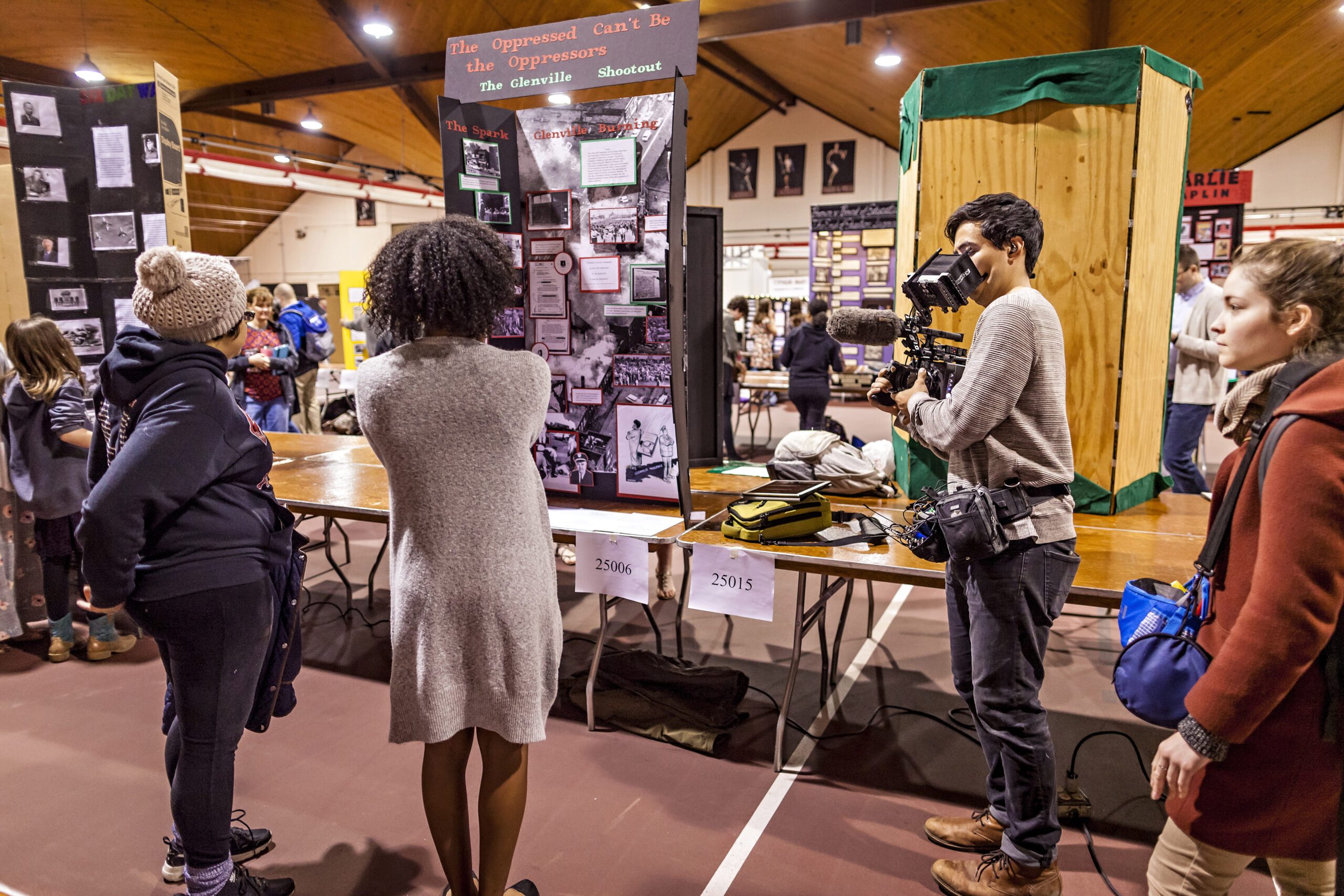
The availability of video cameras and digital editing software has increased the popularity of this entry category. Become a filmmaker and develop skills in using photographs, film, video, audio, computers, and graphic presentations to communicate your topic's significance. If you are able to use editing equipment this can be an exciting and educational project.
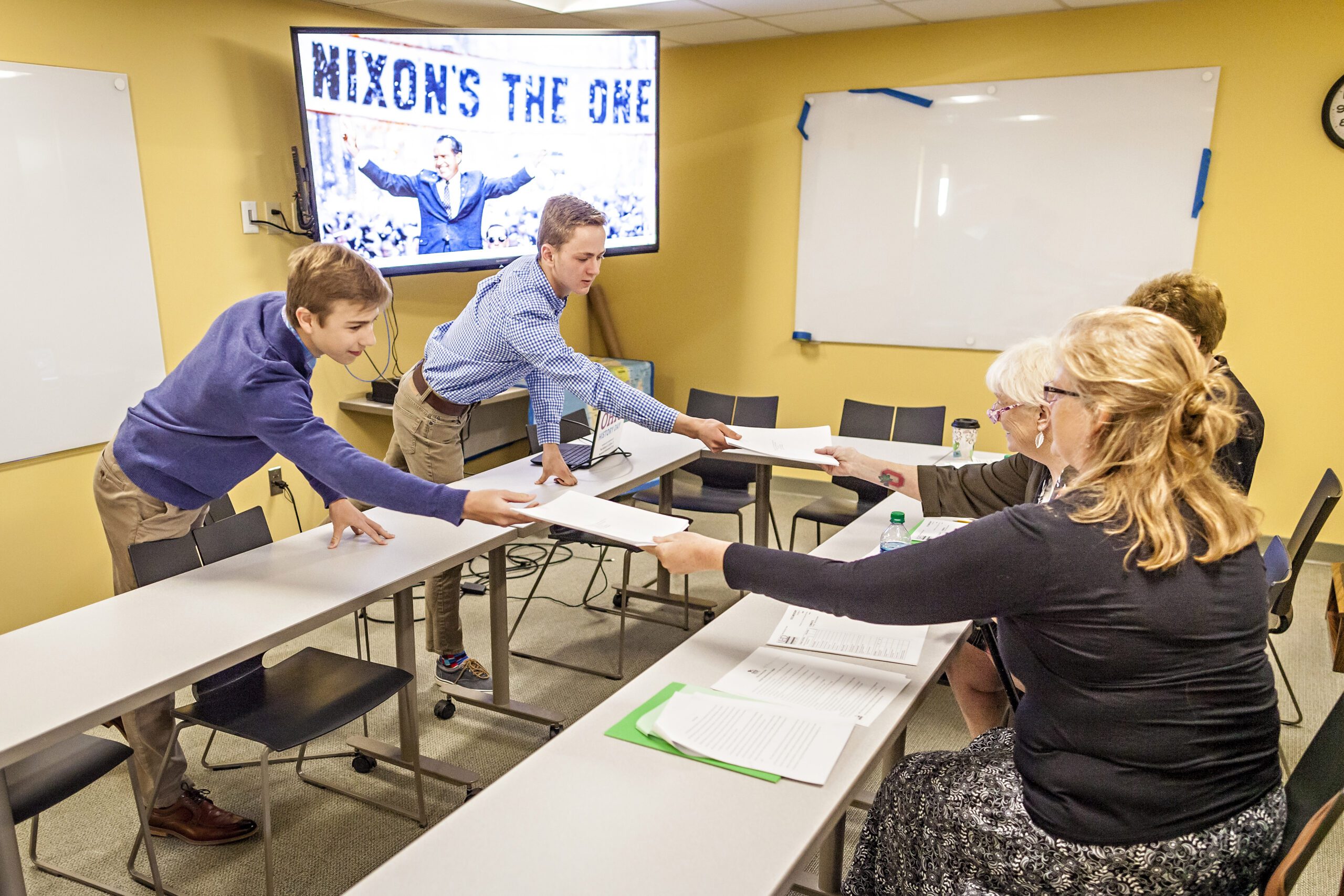
The process of the historical research paper is similar to the writing of articles and books by college professors. A research paper requires three basic steps.
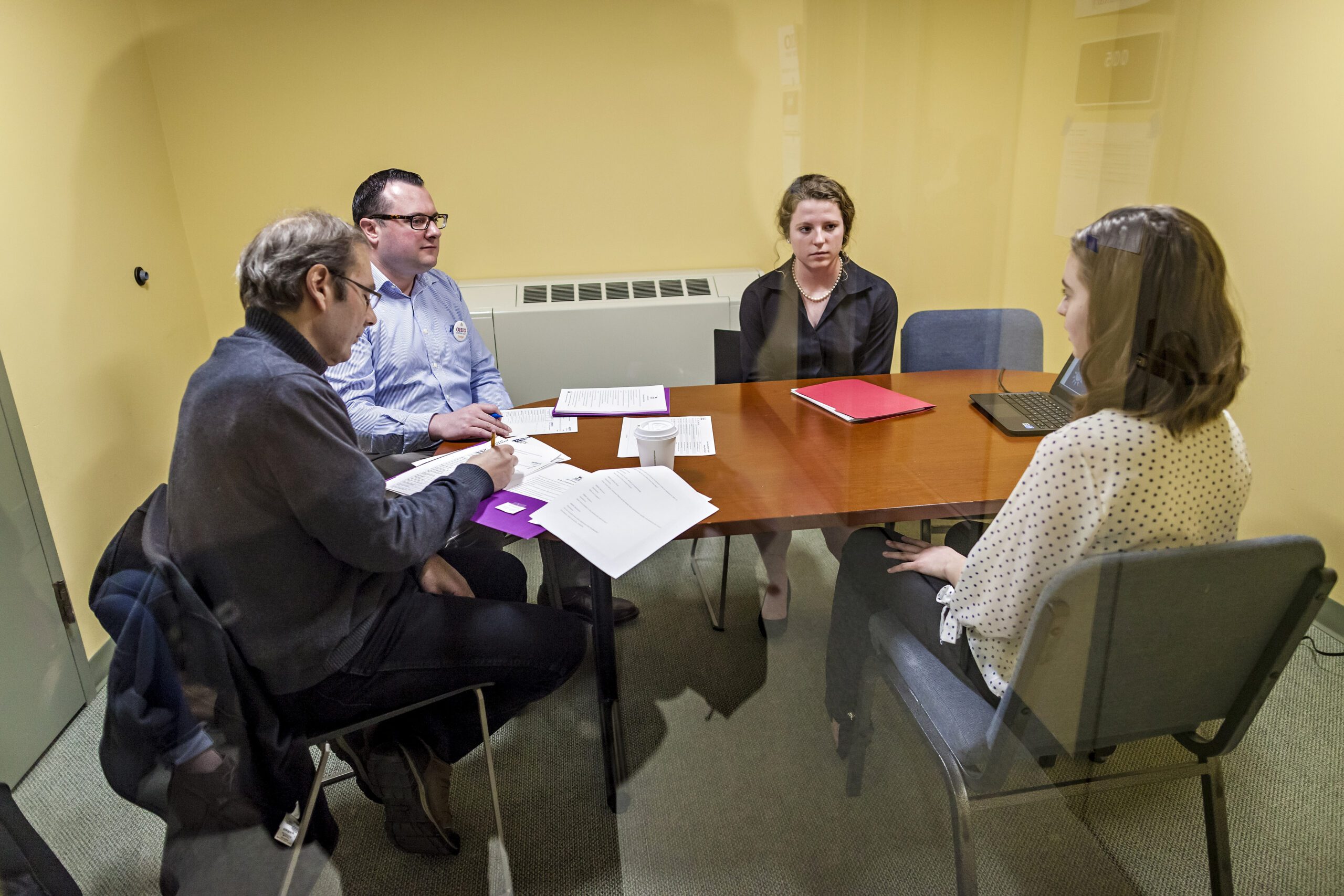
The Performance category allows you to create a historical play. Entries in this category must have dramatic appeal, but not at the expense of historical information. Creativity is the key here, and students must make effective use of their 10-minute time allowance. Innovative performances have made this category the highlight of many History Day competitions!
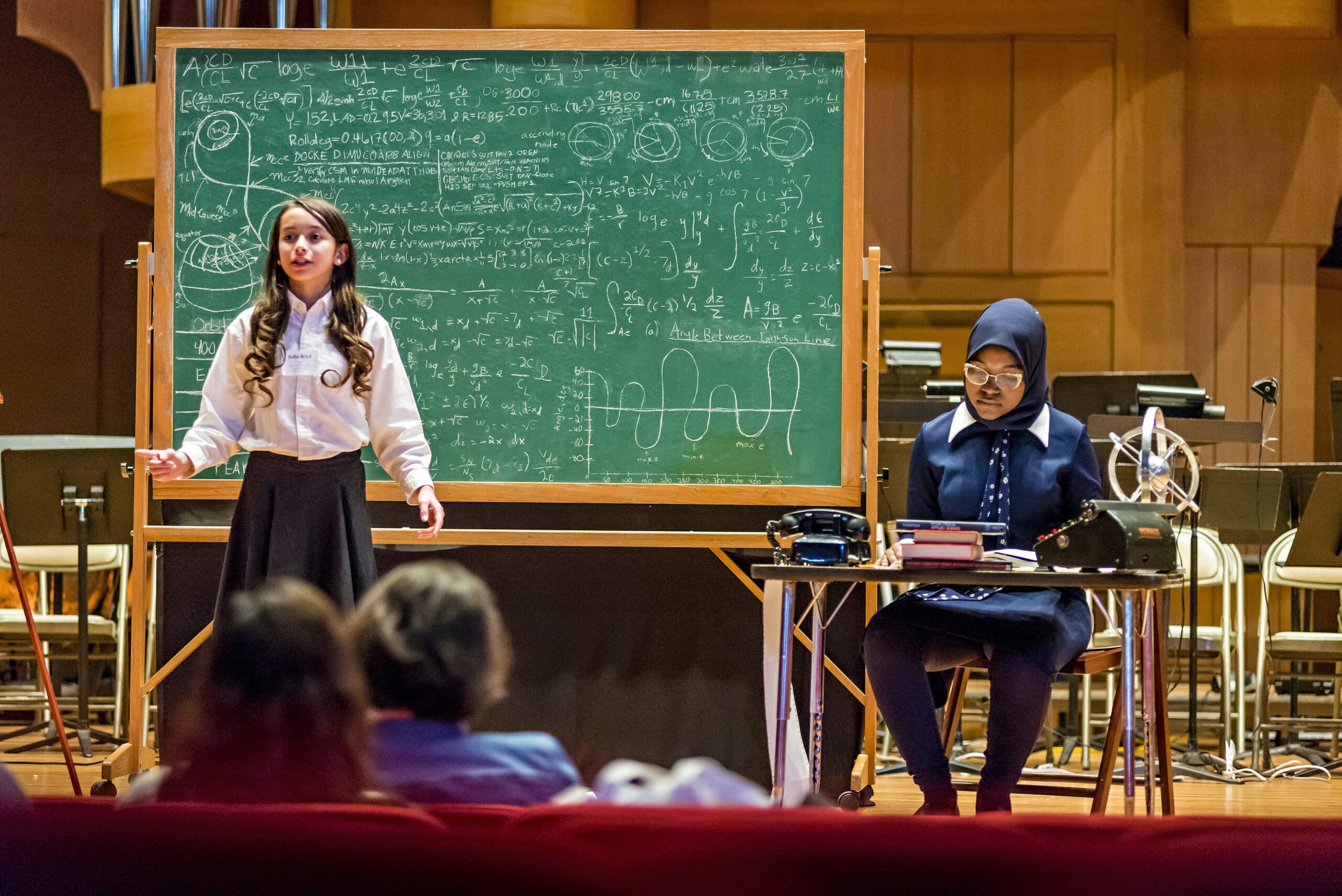
The website category is the most interactive of all History Day categories. A website should reflect your ability to use website design software and computer technology to communicate your topic’s significance in history. Websites MUST be created using NHDWebCentral. Websites not created using the NHD software will be ineligible for advancement at the contests.
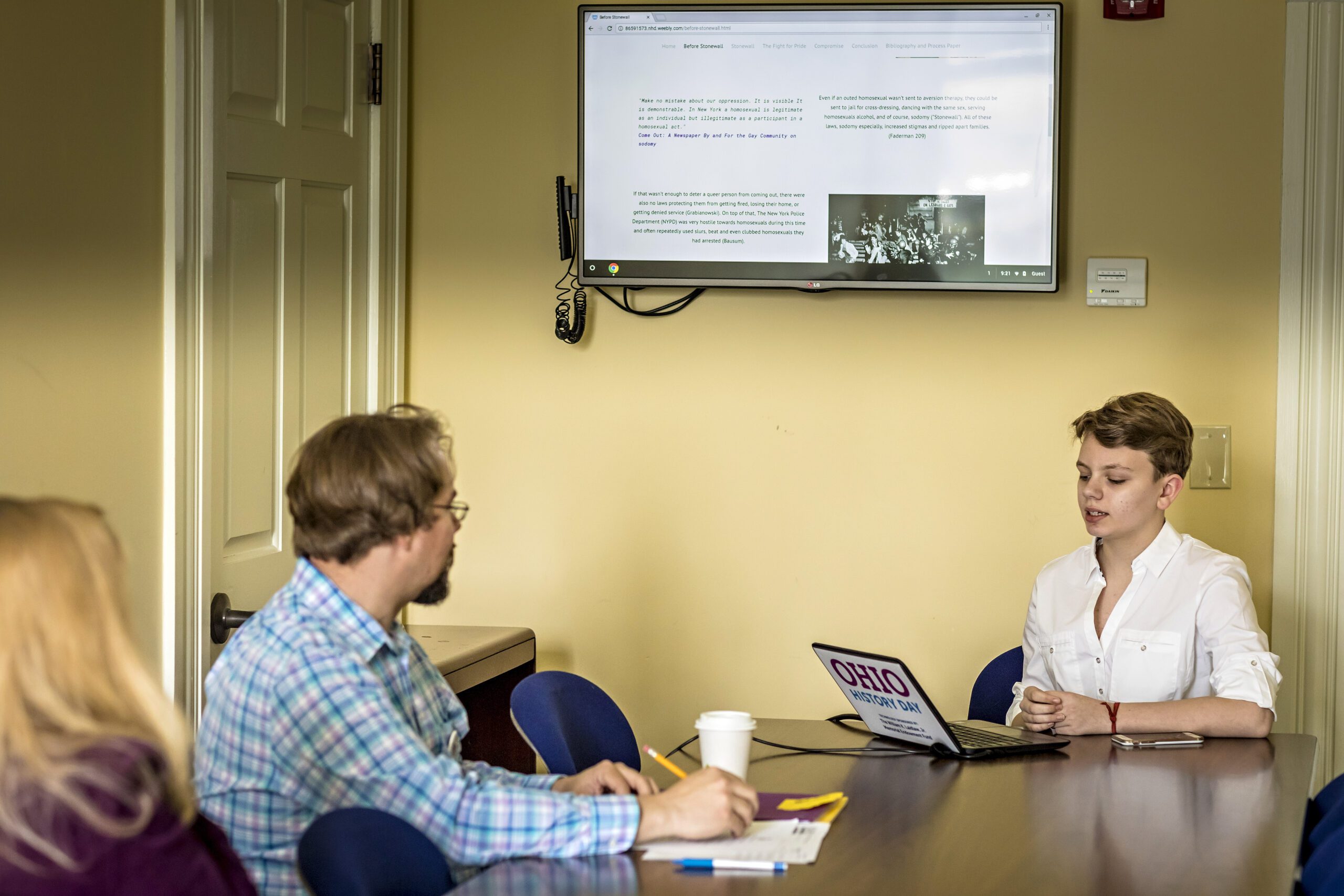
The key to an effective Ohio History Day entry is the combination of a good topic with good sources. Here are some questions to think about when you select a topic to research:
A good way to choose a topic is to start with a general area of history you find interesting. This might be information you read about in your textbook or something related to family history. It can also be related to a hobby or personal interest, such as sports, comics, film & tv, politics, science and engineering - all of these have a connection to history.
Once you define your interest, the next step is to narrow your general ideas into a more focused topic. Use the below resources to help you!
For a History Day project to be successful, you need to do more than report facts. You need to dive a little deeper into your research and create a historical argument - also know as a thesis statement. A historical argument is an informed opinion on your topic. It's supported by evidence from your sources.
A historical argument:
As you do more research and find more information, your ideas on your topic might change. Your historical argument should change to show this. Remember, your argument needs to be supported by the historical evidence! See pages 9-13 of the 2024 Student Research Guide (Coming Soon) for more help!
As you start to gather information, it is important to have a research strategy. A good research strategy has two parts:
Analyzing Sources
In your research journey, you may come across some important cartoons, photographs, facts, or quotes that you may not fully understand. These analysis documents can help you understand the meaning and importance behind these significant sources.
Annotated Bibliography
A bibliography is an alphabetized list of the sources you used. An annotated bibliography not only lists the sources but also gives a short description (2-3 sentences max.) of the source and how you used it in your entry. A History Day bibliography should be separated into primary and secondary sources. For guidelines on bibliographic style, you should refer to A Manual for Writers of Term Papers, Theses, and Dissertations by Kate L. Turabian, or the style guide of the Modern Language Association of America (MLA).
Use the Evaluating Sources and Creating a Bibliography Organizer to help you! See pages 19-20 in the Contest Rule Book for more information.
Every History Day category (including the Paper category) must include a process paper. This paper introduces your topic, explains how you developed your entry and documents your research process. It is important to do a good job on this part of your entry because it is the first thing the judges look at when evaluating your work. The process paper should be no more than 500 words and respond to the following questions:
See page 19 of the Contest Rule Book for more information.
This series from NHD shows how to effectively use different online resources to find credible sources.
Join Ohio History Day as we travel across the state to help you take your research to new heights! We’ll be there to help you master the art of research, connect with experts and gain valuable History Day skills. Whether you’re researching or ready to build your final presentation, come work on your project with us!
What to expect:
To better help you with your research, registration is required for these free events. Find the location nearest you and sign up to attend!
Date & Time: Saturday, December 9, 2023 from 9:30 a.m.- 1:30 p.m.
Address: 96 S Grant Ave, Columbus, OH 43215
Registration Link: https://forms.gle/qfqWfeaGoJZNP3eb8 Registration Closes Friday, December 8, 2023.
Date & Time: Sunday, January 14, 2024 from 1:30 p.m.-5:00 p.m.
Address: 7 Spruce St, Gallipolis, OH 45631
Registration Link: https://forms.gle/zuhYBXXJsh8nZEpQ8 Registration closes Friday, January 5, 2024.
Date & Time: Saturday, January 20, 2024 from 10:00 a.m.- 2:00 p.m.
Address: 205 S. Market Ave. Canton, Ohio 44702
Registration Link: https://forms.gle/uv13fKJM4eqWbsyg7 Registration closes Friday, January 12, 2024.
Date & Time: Saturday, December 16, 2023 from 9:30 a.m.- 1:30 p.m.
Address: 1350 Brush Row Rd, Wilberforce, OH 45384
Registration Link: https://forms.gle/PUFywVoNRb8MMPLBA Registration Closes Wednesday, December 13, 2023.
Date & Time: Saturday, January 20, 2024 from 10:30 a.m.- 2:30 p.m.
Address: Jerome Library, Bowling Green, OH 43403
Registration Link: https://forms.gle/Jk73DBmcxVtQctUw9 Registration closes Friday, January 12, 2024.
Date & Time: Saturday, January 27, 2024 from 9:30 a.m.- 1:30 p.m.
Address: 1301 Western Ave, Cincinnati, OH 45203
Registration Link: https://forms.gle/4dKjy36XRNqioLsQ9 Registration closes Friday, January 19, 2024.
Check out the current and past webinars below designed to help support your project every step of the way from research to creation!
As History Day approaches, it's time to begin constructing your project. Ever wonder what you can do to make your project stand out in a crowd? Join us for this free student webinar to learn about some of the small things you can do that make a big difference in your project!
Date: January 10, 2023
Watch: https://youtu.be/QkfdyKGSLS4
Guest Speaker: Alaina McNaughton, Contest Manager, National History Day
Description:Join us for a conversation with National History Day Contest Manager (and former NHD student) Alaina McNaughton to discuss common student pitfalls in History Day projects and what you can do to make your project stand out in the crowd. Learn how to boost your student voice, why multiple perspectives matter and how to make the evaluation process work for you.
Native peoples have made their homes in the land we now call Ohio for over 15,000 years. Join us for this free, two-part webinar series to introduce this history to students and share tips on how to research and develop History Day projects that incorporate American Indian peoples, cultures and histories. Don't forget to explore the Research Guidelines: American Indian History website, too!
Dates: October 12, 2022 & October 19, 2022
Watch Part 1: https://www.youtube.com/watch?v=g1V9Fz2D6Pc
Watch Part 2: https://www.youtube.com/watch?v=1H3Tz8M54w8
Guest Speakers: Dr. Stephen Warren, Professor of History, University of Iowa & Renée Gokey, Teacher Services Coordinator, Smithsonian Institute’s National Museum of the American Indian
Descriptions: Part 1: Introduction to American Indian History in Ohio- Hear from Dr. Stephen Warren (Professor of History, University of Iowa) about the rich histories, viewpoints and stories of American Indian peoples connected to this land. Get potential topics you can explore in your history day project, as well as where to start conducting some secondary and primary source research.
Part 2: Tips for Meaningfully Researching American Indian History- Join Renée Gokey (Teacher Services Coordinator, Smithsonian Institute’s National Museum of the American Indian) as she shares best practices for researching American Indian voices and who, how and where to reach out to for assistance. Learn about the importance of oral histories, storytelling, and material culture for many tribes. Discuss how to incorporate these primary sources into your research and respectfully portray American Indian history throughout your project.
Please read the NHD Contest Rule Book (en Español). The NHD rulebook contains general rules for everyone and then specific rules for each category.
Topics can come from any time period and any place in history. Projects can be about war, music, art, sports, etc. Topics must fit within the theme for the year. The connection to the theme should be evident in the project and the connection should not be forced. See the NHD Theme Narrative, and the Ohio Theme Sheet, and Topic List for more information on this year's theme and topic ideas.
Check the Contest Information page to find the date of your contest and when registration materials are due.
The websites are locked down before the contest so that the judges can take their time to evaluate the project before the contest. The judges will then interview you about your project on the day of the contest.
When your project is judged the judges are evaluating your project using two different levels of criteria.
Historical Quality
The Historical Quality of your project is worth 80% when it comes to the judges' final decision. Historical quality focuses on the strength of the historical argument, relation to the theme, accuracy of facts, an understanding of historical context, a wide array of research represented in the annotated bibliography, a balanced presentation of your materials (unbiased) the use of available primary sources, and the presence of student's voice.
Clarity of your Presentation
This criterion is also worth 20% in your final evaluation. Clarity of presentation focus on whether the entry is presented in an effective, original and creative manner. The judges will also consider an entry in compliance with the rules in the final consideration. Failure to follow the rules will count against an entry in the final decisions by the judges.
At every level of competition, ALL JUDGES DECISIONS ARE FINAL!
You can view the rules here.
These are the evaluation sheets used by the judges.
No, you are not allowed to prepare an official presentation for the judges. They will read your paperwork and view your project.
Interview questions can vary depending on the judges. Most likely you will be asked content questions about your topic and then questions about your research and how you put together your projects. Here are some sample questions you might be asked:
The advancement number is based on the number of projects in each category at the regional contest. The general rule is that three from each category move on but sometimes if there are a lot of projects, the regions can send more. The number is a maximum for judges and they do not have to send on the maximum number.
Ohio History Day will be held in-person on Saturday, April 20, 2024. More information will be shared with participants in Fall. Remember to frequently check the Contest Information page to learn more.
The top two projects in each category advance to the national contest. The third-place finisher will be the national alternate in case the second-place finisher is not available to attend nationals.
The Ohio History Day office and National History Day office are always looking for interns. We can work with you to craft an internship that will serve you in your career goals and help us make history day amazing. This can include but is not limited to student outreach, event planning, and program management. In addition, the Ohio History Day office is often able to offer a modest stipend for your work.
Want to get a conference presentation under your belt or visit a local school to talk about your experience? We can help you. Nothing sells the history day experience like hearing about it from students who have participated in the program.
We often feature alumni in our email blasts read by legislators and donors. Your stories and experiences help keep history day in the spotlight.
Please contact us by visiting our Contact Us page and selecting "History Day" from the drop-down menu.
Are you ready to elevate your research skills to new heights? Looking for some expert advice on your History Day project? Join Ohio History Day for research days at libraries, archives, and museums across the state! Follow the link to find a research day near you!
